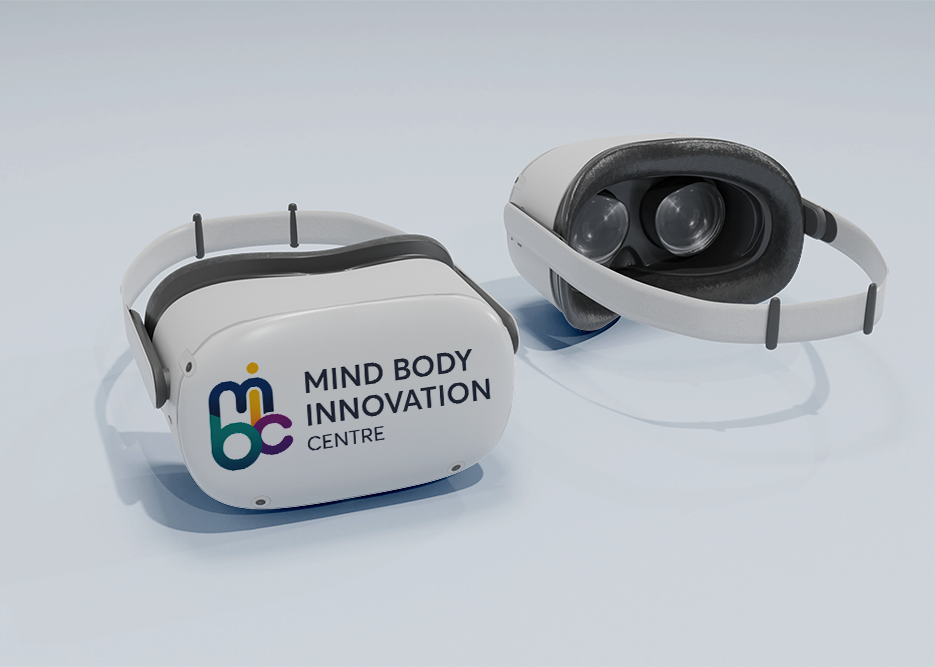Virtual Reality (VR) Available
Unlocking Virtual Reality in Therapy
Revolutionising Mental Health Care
Welcome to the forefront of modern therapy. Virtual Reality (VR) isn’t just about immersive gaming anymore; it’s breaking barriers in the realm of mental health care. Explore how harnessing the power of VR can transform your therapy experience and elevate your journey to emotional well-being.

Benefits of Virtual Reality Assisted Therapy
Safe Space Creation
VR offers a controlled environment where you can confront and process challenging emotions or situations in a safe and supportive setting. This controlled exposure can be invaluable in treating phobias, PTSD, and anxiety disorders.
Enhanced Engagement
Traditional therapy settings sometimes struggle to fully engage clients. VR captivates attention by immersing you in interactive experiences, increasing their involvement and investment in the therapeutic process.
Personalised Treatment
Every individual’s needs are unique. VR allows your therapist to tailor experiences to suit your specific therapeutic goals, providing customised interventions that cater to the your preferences and challenges.
Empowering Empathy
VR simulations can offer firsthand experiences of others’ perspectives, fostering empathy and understanding. This can be particularly impactful in addressing interpersonal conflicts, prejudice, and social anxiety.
Effective Exposure Therapy
Exposure therapy is a cornerstone of treating anxiety disorders and PTSD. VR enables your therapist to create controlled environments for gradual exposure, facilitating desensitisation and symptom reduction.
Presentations in VR Therapy
- Experiential Role-Playing: Engage in simulated scenarios to practice social skills, assertiveness, and conflict resolution in a safe and supportive environment.
- Mindfulness and Relaxation: Immerse yourself in serene environments to practice mindfulness, meditation, and relaxation techniques, promoting stress reduction and emotional regulation.
- Virtual Travel and Exploration: Escape the confines of the therapy room and embark on virtual adventures to reduce feelings of isolation, broaden perspectives, and promote emotional resilience.
- Pain Management: Utilize distraction techniques and immersive experiences to alleviate pain perception, offering an alternative or adjunctive approach to traditional pain management strategies.
- Cognitive Rehabilitation: Engage in cognitive exercises and brain training games to enhance memory, attention, and executive function, supporting recovery from brain injuries or neurocognitive disorders.
- Cognitive Skills and Focus: Participate in cognitive exercises and attention-training activities to sharpen focus, enhance problem-solving abilities, and improve cognitive flexibility.
- Verbal and Social Skills: Navigate virtual social interactions to build communication skills, improve empathy, and cultivate meaningful connections with others.
- Stress and Anxiety Reduction: Immerse yourself in calming environments and relaxation exercises to alleviate stress, reduce anxiety symptoms, and promote overall emotional well-being.
- Mindfulness: Embark on guided mindfulness journeys to enhance present-moment awareness, promote acceptance, and cultivate a sense of inner peace and tranquility.
- Emotion Regulation: Practice emotion regulation techniques in immersive environments to develop coping strategies, manage intense emotions, and foster emotional resilience.
- Sensory Grounding: Utilise sensory grounding techniques in virtual environments to anchor yourself in the present moment, regulate overwhelming sensations, and promote emotional stability.
Contact
- 02 4086 7141
- hello@mbicentre.com.au
- Level 1, Suite 1, 21 Annie Street, Wickham, NSW, 2293
- Monday - Friday - 9:00AM – 4:30PM
Get A Referral
Our focus is the innovation & enhancement of your mental & physical health to support an improved quality of life, & reaching true potential.


